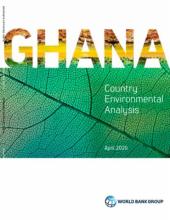Land Library
Bienvenue dans la bibliothèque du Land Portal. Explorez notre vaste collection de ressources en libre accès (plus de 74 000), comprenant des rapports, des articles scientifiques, des articles de recherche, des publications évaluées par des pairs, des documents juridiques, des vidéos et bien plus encore.
/ library resources
Showing items 1 through 9 of 5183.June 4, 2021 -- An increasing number of countries are facing growing levels of acute food insecurity, reversing years of development gains.
The paper critically engages with sustainable development goal targets (SDG-2- Target 2.3; SDG-5) to examine how and why large-scale agricultural land acquisitions modify the social relations of women’s food access.
This policy brief provides details of the United Nations Special Rapporteur recommendations regarding how governments can upgrade informal settlements within a human rights-based framework.
Despite an inflow of investment in rural communities, there are concerns about negative impacts on local people’s livelihoods, access to farming land, productivity, income levels, food security and access to social services.
Over the past 30 years, real GDP in Ghana has more than quadrupled, and in 2011 the country joined the ranks of Lower Middle-Income Countries (LMICs).
In May 2019, a complaint was lodged with CAO by members of 22 communities from the Margibi and Bong Counties in Liberia (the “Complainants”), supported by the NGOs Green Advocates International (GAI), Alliance for Rural Democracy (ARD), Natural Resource Women Platform (NRWP), and the Yeagbamah Na
Labor migration and large-scale land enclosures are increasingly central to the story of agrarian change throughout the Global South.
This paper deepens the economic analysis of the effects of land consolidation – reduction of land fragmentation.
Land tenure, or access and rights to land, is essential to sustain people’s livelihoods. This paper looks at how farm households perceive land tenure (in)security in relation to food (in)security, and how these perceptions evolve throughout different policy periods in Laos.






